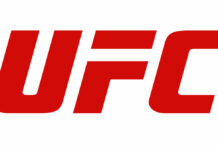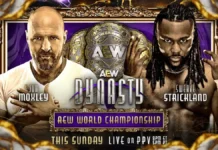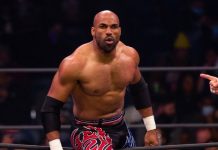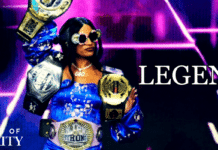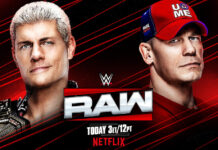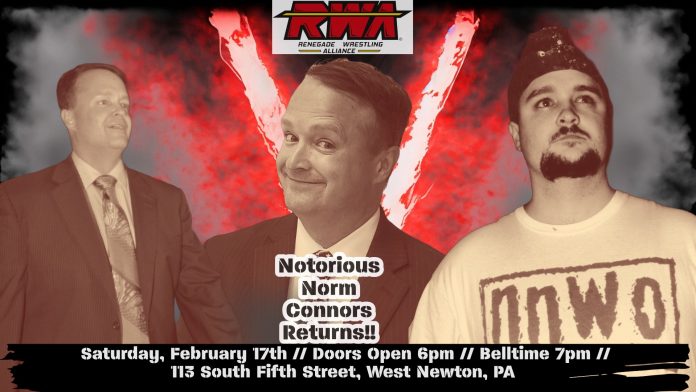
When the regional territory system in the United States, a collection of geographically-based promotions that drew consistent crowds in the same cities on a regular basis with a product tailored to specific audiences, evaporated in the midst of Vince McMahon’s national expansion of the late-80s, there was a void within the sport. After all, local groups were the foundation that the previously mentioned regional system was built on, and from the foundation , major stars blossomed to achieve global success within the business’ consolidated national landscape.
As the years went on, the independent circuit, usually anything designated apart from a national organization, took the place of the vibrant territory system of the prior era. While the independence leagues usually didn’t offer the exposure or full-time schedule that the territories once did, it was a way for fans to see live cards more often than just when the touring promotions happened to stop in their town twice a year. For performers, it gave them a chance to break into the industry and thus chase the dream of the national contract.
For Pittsburgh, a city known almost as much for its wrestling as the steel it once produced, names like Bruno, Douglas, and Angle shined as legends across the globe. But, let’s not forget how vital the independent scene was to allow the next generation of stars to not only get in-ring experience, but also be discovered by the national spotlight. Corey Graves, Joaquin Wilde, and Lee Moriarty all have beginnings on the canvases of western Pennsylvania.
While the independent circuit of the steel city is decorated with longtime veterans that were known for their consistency and quality over the span of established careers, Norm Connors is regarded by many as the godfather of Pittsburgh independent wrestling. Over the course of a 15-year career as a promoter of the region, he provided a blue print of the genre in the area, and his finger prints can still be seen on the circuit today. It’s not uncommon for different organizations to run events nearly every weekend somewhere around the area.
For Connors, it was almost as if pro wrestling was destined to be apart of his life, especially as a way for the over-the-top spectacle of the squared circle to shield him and provide a level of comfort from some of the harsh aspects of reality.
“The day my mother died, my father put me in front of a television after breaking the news, as he had to talk with my mom’s mother and sister. So, he just put whatever was on television, and it happened to be a Thursday night, and wrestling was on channel 22. I was hooked,” Norm said of his discovery of the grappling arts at the age of just five.
Even before he broke into the unique world of professional wrestling, Norm, was Pittsburgh born and bred, a native of the city’s North Side. After attending North Catholic High School, he majored in English writing, graduating from The University of Pittsburgh in 1994. After being enthralled with the action he saw on television throughout his youth, when Connors wasn’t hitting the books during his college years, he hit the road, attending as many WWF TV tapings and ECW Arena shows as he could around the north east of the country. The slump of the industry of the early-90s had McMahon’s Titan Sports taping the majority of its television within a relatively small area to save on production costs, and even when ECW expanded around Pennsylvania and into other states, the stronghold was the part-time bingo hall that was just minutes away from the famous Rocky steps in south Philadelphia. The hub of pro wrestling was pivotal, as Norm met and befriended many that he later worked with in his own ventures into the industry.
It didn’t take long for Norm to find a role within the regional circuit during those early years, but he had bigger aspirations almost immediately.
I knew when I worked as an ring announcer and manager, I just wanted to run my own shows. That was always the goal,” Norm commented.
After his start in the industry and with the contacts he made through the previously mentioned road trips, the villainous manager on the weekends realized that his student-teaching duties during the week just weren’t for him.
“I ended up leaving school the one day, and the next day opening up Steel City Wrestling,” Connors said.
From the time that Steel City Wrestling, a not-so-subtle proclamation to become the hometown organization, launched in late-1994, Norm kept a busy schedule within the business. He worked for other promotions at ringside as “Notorious Norm” and had roles behind the scenes as well. For roughly half of its existence, SCW ran “sold shows,” fundraising efforts that took the financial pressures off of the promoters when different groups provided a budget, while receiving a portion of the proceeds to collect money for their organizations. The other side of the coin was that the promoters had to delivery a solid house to keep the fundraisers profitable for those same organizations. It might be a VFW hall or an American Legion, but profit is profit. Norm kept his fundraising partners happy, as his events drew well and allowed those outfits to make money for their organizations through pro wrestling events. Norm saw that he had a formula that worked in the late-90s amid the wrestling boom of the era and jumped in with both feet with traditional events, where the profit or loss landed solely on SCW, in early-1998.
“I was traveling all over, working for other promoters in my Notorious Norm character. I figured the only way to draw in Pittsburgh was to be different, so I brought a crew of up-and-coming wrestlers from all over the country, and sprinkled them in with a few local talents, and big name stars,” Connors explained.
By 2000, Connors landed in a full-time career within a the funeral industry, a role that he has been highly successful in for almost 25 years, but attending mortuary training kept him so busy that he opted to stay away from the squared circle, concluding the Steel City Wrestling project and wrapping him his commitments with other wrestling groups to focus his full attention on what become his life’s work outside of sports entertainment.. However, it didn’t take long for the allure of the ring to bring him back to the sport, as local radio persona, Bubba The Bulldog began his own company, the International Wrestling Cartel, and the following year, Norm asked if he could promote events under that banner.
“Honestly, I just wanted to bring back Steel City Wrestling, but I was talked into IWC. It was very much like the late=90’s version of Steel City Wrestling in the sense that talented wrestlers from all over the country and in later years, the world were on the shows. But, the quality of the local talent rose considerably, so it was a nice mix of locals and up-and-coming talents, mixed in with stars,” Connors explained.
Throughout the first decade of the 2000s, the IWC was considered by many to be the premiere Pittsburgh organization. Before he was Corey Graves with a headset on Raw, Sterling James Keenan wore the boots in IWC. AJ Styles, Christopher Daniels, CM Punk, and many others that went on to achieve national fame were regulars in Pittsburgh under the direction of Norm Connors. Everyone from The Honky Tonk Man to Mick Foley worked for Norm over the years. Local athletes that became apart of the fabric of the Pittsburgh scene got some of their first opportunities under Norm. Troy Lords, Dean Radford, and John McChesney are just a few that became pillars of Pittsburgh events after they originally started alongside Norm in IWC.
“Norm took a 15 year old kid with a dream and made it a reality with the opportunity to wrestle some of the best of the best in the world. The doors that opened from the people I met over time allowed me to travel across the globe and do what I love,” said Dean Radford, former IWC champion, and current co-head trainer for Ryse Wrestling, based in Uniontown, Pennsylvania.
But, the recession of 2008 hit everyone hard, including the economics of the pro wrestling business, especially on the independent level. When gas prices soared, it became more expensive to bring talent into Pittsburgh for IWC events, a direct hit to the organization’s bottom line. With costs of nearly everything increasing, fans simply had less cash to spend in their wrestling budget, both on tickets and DVDs. Norm cites the drop in DVD sales, which he explained were a critical part of the company with sales throughout the world, as a strain on the company into 2009.
Aside from working 70-80 hours a week in the funeral industry, Norm spent many late nights working on his promoter tasks for IWC, often scribbling notes for the next wrestling card as he attempted to balance both stressful jobs. Eventually, a significant weight gain led Norm to make the decision to step away from the sport, selling IWC to former ring announcer Chuck Roberts at the conclusion of 2009.
After he left wrestling to again focus on the funeral business, the weight was lifted off his shoulders and his mid-section, as he dropped the extra pounds to find himself healthier and happy with the legacy he left behind. Sure, Norm made a few wrestling-related appearances over the years for Chuck Roberts, who eventually sold the promoter to current owner, Justin Plummer, but Connors felt content with his accomplishments within the zany world of wrestling he discovered in front of the television when he was a toddler.
But, everyone that truly pours themselves into the pro wrestling industry knows that if opportunity knocks and the circumstances are right, you have to answer the door. After the initial stages of the pandemic began to finally subside, Norm actually gave a comeback to promoting serious consideration. He talked to venues and even made contact with All Elite Wrestling to find out what stars would be available to bring into Pittsburgh, but the Delta variant hit hard, prompting his duties as funeral director to overtake the time he would’ve needed to accomplish the comeback goals he would’ve set for himself.
“The Delta variant hit, and it was overwhelming for our funeral business in a different way than the initial wave. The initial wave was incredibly rough plus it was the unknown of COVID. The Delta wave was just incredibly rough, and even busier than the initial wave,” he explained.
But, when opportunity knocks and the circumstances are right, even “Notorious” Norm was there to answer.
The ripple effect of Norm’s organization was seen beyond the performers that it introduced to the audience and the individuals that it gave a chance to pursue their dreams in the ring. Similar to many others that attended those early IWC cards that eventually began a journey into the sport, Derek Widziszewski, the founder of the Renegade Wrestling Alliance, a blue collar group based in West Newton, PA, became a fixture of the independent scene through his attendance of Norm’s shows. Derek’s enthusiasm was infectious and he became a staple of the circuit, making contacts with talents. As Norm was winding down his promoting career, Widziszewski began his.
Just over 15 years later, the two men’s paths will cross again when Norm Connors is scheduled to make his long-awaited return to pro wrestling at this Saturday’s RWA event.
It has been nearly eight years since anyone has seen Norm in a wrestling ring, and he’s not coming alone. After longtime veteran, Chris Taylor joined forces with established pro, J-Rocc to cause chaos for Widziszewski’s company, Norm wanted to aid his friend Derek and former IWC Super Indy champion, John McChesney. Norm’s old pal, ECW legend, Tommy Dreamer will also make a return to Pittsburgh to join forces with McChesney for a highly-anticipated tag team bout.
“Norm Connors and I go all the way back to the 90’s for our first time working with one another. Now, over 20 years has past since we last worked together, I am looking forward to doing so again, but one thing I learned all those years ago is that, and I am sure it still applies today, Norm Connors is as unpredictable and complex as a person as I have ever met. It should be interesting when Norm shows up inside an RWA ring for the first time ever,” said Quinn Magnum, the head organizer at RWA.
“I’ve been asked several times to come in for local companies, but always turned them down. This time, I was given a story that I was able to sink my teeth into, and decided to come back,” added Connors.
In many ways, Saturday’s event will provide a full moment for many of those involved. The RWA might not have existed without the influence of Norm Connor’s efforts as a promoter, and this weekend in West Newton will provide Connors with a platform to return to the genre that he helped mold in Pittsburgh.
For more information about this Saturday’s event, you can go to https://www.facebook.com/WrestlingRWA
What do you think? Share your thoughts, opinions, feedback, and anything else that was raised on Twitter @PWMania and Facebook.com/PWMania.
Until next week
-Jim LaMotta
E mail [email protected] | You can follow me on Instagram, Facebook, & Threads @jimlamotta89


